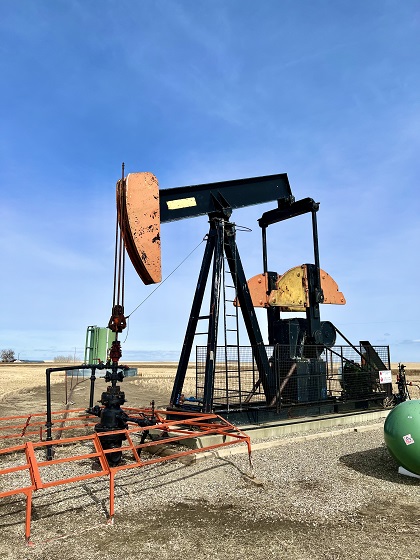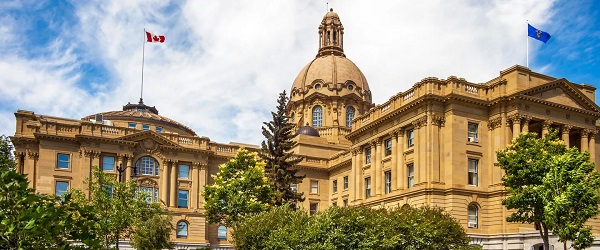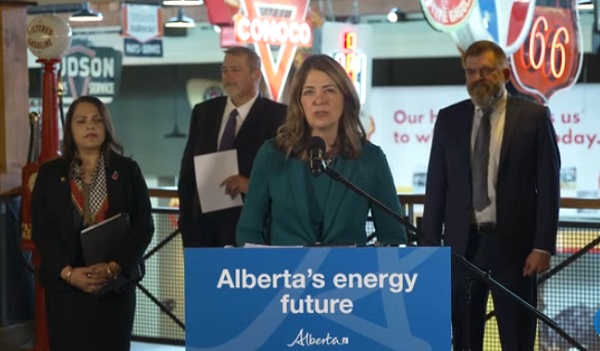Alberta
Jason Kenney’s Separatist Panic Misses the Point

By Collin May
Time was a former political leader’s expected role was to enjoy retirement in relative obscurity, resisting the urge to wade into political debate. Conservatives generally stick to that tradition. Ralph Klein certainly did after his term ended. Stephen Harper has made no attempt to upstage his successors. Yet former Alberta Premier Jason Kenney can’t seem to help himself.
From the boardroom of Bennett Jones, one of Calgary’s oldest law firms, Kenney recently offered his thoughts on the unspeakable horrors that await the province should it entertain a debate (perhaps even call a referendum) on separating from Canada. While dismissing Alberta separatists as a “perennially angry minority”, Kenney nevertheless declared a vote on separation would “would divide families, divide communities, divide friends for no useful purpose.” Business partnerships, church and community groups, even marriages and families would break apart, he warned, “shredding the social fabric of the province.”
It was a remarkable burst of untethered hyperbole, but it says more about the former premier than it does about the province he once led.
Kenney’s take on the history of Alberta separatism is telling. It’s a 50-year-old “discredited concept,” he said, whose acolytes “couldn’t get elected dogcatcher in this province.” Exhibit A in his analysis was Gordon Kesler, an Alberta rodeo rider and oil company scout who believed independence was the only way to save Alberta from Ottawa’s depredations. In a 1982 byelection, Kesler got himself very much elected as an MLA under the Western Canada Concept banner. He later lost in the general election to Peter Lougheed’s Progressive Conservatives, but Lougheed did not belittle Albertans for entertaining separatist notions. Instead, he asked for a mandate to fight Ottawa more effectively — and got it.
Kenney, by contrast, ridicules separatists while simultaneously painting them as an existential menace. Worse, he likens them to followers of Vladimir Putin and (perhaps even worse?) Donald Trump. “[I]f you just follow them on social media,” he claimed, one will quickly see that they cheered on Putin’s attack on Ukraine and Trump’s threat of making Canada the 51 st state.
Kenney’s latest intervention fits a pattern. As premier from 2019 to 2022, he could not resist trying to stamp out dissent. During the pandemic, he alienated political allies by dismissing their concerns about mandatory vaccines with contempt. He saw his ouster as UCP leader as the result of a Trumpian-inspired or “MAGA” campaign. UCP party faithful, however, said their rejection of him had far more to do with his top-down leadership style and habit of “blaming other people for the errors he made.”
What’s especially striking about Kenney’s separatist obsession is that he seems to understand as little about Albertans now as he did while premier. Albertans have long debated separation without the province descending into chaos. When Kesler won his seat, people talked about separation, argued its pros and cons, but couples were not running to their divorce lawyers over the issue and business partners were not at each other’s throats.
And there are legitimate reasons for concern about Canada’s social and political structure, as well as the role provinces play in that structure. Canada’s institutions operate largely on an old colonial model that concentrates power in the original population centre of southern Ontario and Quebec. This has not, and does not, make for great national cohesion or political participation. Instead, it feeds constant fuel to separatist fires.
The current threat to Canadian identity comes as well from the ideological commitments of our federal government. Early in his time as Prime Minister, Justin Trudeau declared Canada to be a “post-national” state. This sort of moniker is consistent with the popularly-designated woke doctrine that eschews the liberal nation-state, democratic procedures and individual freedom in favour of tribalist narratives and identity politics.
The obsession with post-nation-state policies has initiated the dissolution of the Canadian nation regardless of whether Quebeckers or Albertans actually vote for separation. We are all becoming de facto separatists within a dissolving Canada, a drift that current Prime Minister Mark Carney’s ineffective “elbows up” attitude has done nothing to reverse.
Kenney’s panicked musings about Alberta separatists would have us believe the province need only continue the fight for a better deal within the Canadian federation. Kenney pursued just such a policy, and failed signally to deliver. For too many Albertans today, his advice does not reflect the political reality on the ground nor appreciate the worrying trends within Canadian institutions and among our political class.
Kenney likes to associate himself with Edmund Burke, the father of conservatism and defender of venerable institutions. But Burke was known as much in his day for his sympathies with the American revolutionaries and their creation of an experimental new republic as he was for his contempt towards the French Revolution and its Reign of Terror. Burke’s conservatism still linked real actions with true words. It would be advisable, perhaps, to keep our own political language here in Alberta within the bounds of the plausible rather than fly off into the fanciful.
The original, full-length version of this article was recently published in C2C Journal.
Collin May is a lawyer, adjunct lecturer in community health sciences with the Cumming School of Medicine at the University of Calgary, and the author of a number of articles and reviews on the psychology, social theory and philosophy of cancel culture.
Alberta
Alberta puts pressure on the federal government’s euthanasia regime

From LifeSiteNews
Premier Danielle Smith is following through on a promise to address growing concerns with Canada’s euthanasia regime.
Alberta Premier Danielle Smith has sent a mandate letter to Justice Minister Mickey Amery directing him to draft and introduce new legislation on euthanasia to ensure better oversight of so-called “medical aid in dying,” or “MAiD” and to prohibit it for those suffering solely from mental illness.
In December of last year, Smith’s United Conservative government indicated that they would seek to address growing concerns with Canada’s euthanasia regime. Mainstream media outlets attacked the move, with the CBC actually reporting that: “Some are concerned new limitations could impact already vulnerable Albertans.”
Premier Smith has now followed through on that promise. The September 25 mandate letter, which lays out directives on a wide range of issues, calls for the justice minister to take steps to protect vulnerable Albertans suffering from mental illness:
As lead, work with relevant ministries to introduce legislation to provide greater oversight and appropriate safeguards for medical assistance in dying and prohibit medical assistance in dying where a person seeks this procedure based solely on a mental illness.
In an email to the CBC, Amery stated that while euthanasia law is under federal jurisdiction, healthcare falls under provincial jurisdiction. The CBC falsely claimed that mental illness “has never been an approved sole eligibility factor for MAID, though the government has considered permitting it.” In fact, the Trudeau government passed Bill C-7, which legalized MAID for those struggling with mental illness, in 2021.
That eligibility expansion has been delayed twice—in 2023 and 2024—and is now slated to come into effect in 2027. Despite those delays, Bill C-7 is still law. MP Tamara Jansen and MP Andrew Lawton are currently championing Bill C-218, the “Right to Recover Act,” which would reverse this and make it illegal to offer or perpetrate euthanasia on someone struggling solely with mental illness.
The CBC’s coverage of this move was predictably repulsive. In addition to their disinformation on euthanasia for mental illness, they reported that “Smith’s letter directing new provincial legislation on MAID comes almost a year after the government surveyed just under 20,000 Albertans on whether they think the province should step in. Nearly half of those surveyed disagreed with putting in more guardrails on MAID decisions.”
“Nearly half” is an unbelievably deceitful way of reporting on those results. In fact, 62% were in favor of legislation for a dedicated agency monitoring euthanasia processes; 55% were in favor of a MAID dispute mechanism allowing families or eligible others to challenge decisions to protect vulnerable people, such as those with disabilities or mental health struggles; and 67% supported restricting euthanasia to those with physical illnesses rather than mental illnesses. The CBC did not report on a single one of those numbers.
Provincial legislation to protect people with mental illnesses is badly needed, although I pray that by the time Justice Minister Amery gets around to drafting it, the Right to Recover Act will be passed in Parliament, and provincial action will be unnecessary. In the meantime, it is increasingly clear that much of Canada’s mainstream press coverage of this issue actively threatens the lives of the suicidal and those struggling with mental illnesses. If their dishonesty and attempts and manufacturing consent were not so routine, they would be breathtaking.
Alberta
Alberta’s E3 Lithium delivers first battery-grade lithium carbonate
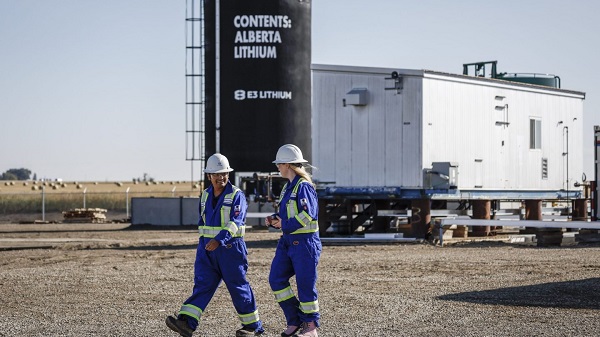
E3 Lithium employees walk through the company’s lithium pilot plant near Olds
From the Canadian Energy Centre
E3 Lithium milestone advances critical mineral for batteries and electrification
A new Alberta facility has produced its first battery-grade lithium carbonate, showcasing a technology that could unlock Canada’s largest resources of a critical mineral powering the evolving energy landscape.
In an unassuming quonset hut in a field near Olds, Calgary-based E3 Lithium’s demonstration plant uses technology to extract lithium from an ocean of “brine water” that has sat under Alberta’s landscape along with oil and gas for millions of years.
Lithium is one of six critical minerals the Government of Canada has prioritized for their potential to spur economic growth and their necessity as inputs for important products.
“The use for lithium is now mainly in batteries,” said E3 Lithium CEO Chris Doornbos.
“Everything we use in our daily lives that has a battery is now lithium ion: computers, phones, scooters, cars, battery storage, power walls in your house.”
Doornbos sees E3 as a new frontier in energy and mineral exploration in Alberta, using a resource that has long been there, sharing the geologic space with oil and gas.
“[Historically], oil and water came out together, and they separated the oil from the water,” he said.
“We don’t have oil. We take the lithium out of the water and put the water back.”
Lithium adds to Canada’s natural resource strength — the country’s reserves rank sixth in the world, according to Natural Resources Canada.
About 40 per cent of these reserves are in Alberta’s Bashaw District, home to the historic Leduc oilfield, where E3 built its new demonstration facility.
“It’s all in our Devonian rocks,” Doonbos said. “The Devonian Stack is a carbonate reef complex that would have looked like the Great Barrier Reef 400 million years ago. That’s where the lithium is.”
Funded in part by the Government of Canada and the Government of Alberta via Alberta Innovates and Emissions Reduction Alberta (ERA), the project aims to demonstrate that the Alberta reserve of lithium can be extracted and commercialized for battery production around the world.
E3 announced it had produced battery-grade lithium carbonate just over two weeks after commissioning began in early September.
In a statement, ERA celebrated the milestone of the opening of the facility as Alberta and Canada seek to find their place in the global race for more lithium as demand for the mineral increases.
“By supporting the first extraction facility in Olds, we’re helping reduce innovation risk, generate critical data, and pave the way for a commercial-scale lithium production right here in Alberta,” ERA said.
“The success from this significant project helps position Alberta as a global player in the critical minerals supply chain, driving the global electrification revolution with locally sourced lithium.”
With the first phase of the demonstration facility up and running, E3 has received regulatory permits to proceed with a second phase that involves drilling a production and injection well to confirm brine flow rates and reservoir characteristics. This will support designs for a full-scale commercial facility.
Lithium has been highlighted by the Alberta Energy Regulator (AER) as an emerging resource in the province.
The AER projects Alberta’s lithium output will grow from zero in 2024 to 12,300 tonnes by 2030 and nearly 15,000 tonnes by 2034. E3 believes it will beat these timeframes with the right access to project financing.
E3 has been able to leverage Alberta’s regulatory framework around the drilling of wells to expand into extraction of lithium brine.
“The regulator understands intimately what we are doing,” Doornbos said.
“They permit these types of wells and this type of operation every day. That’s a huge advantage to Alberta.”
-

 Artificial Intelligence1 day ago
Artificial Intelligence1 day agoThe App That Pays You to Give Away Your Voice
-

 Health1 day ago
Health1 day agoThe Religious Faith in Vaccines has been Challenged, Forcing New Studies and More Rigorous Standards
-

 Agriculture5 hours ago
Agriculture5 hours agoCarney’s nation-building plan forgets food
-

 Fraser Institute6 hours ago
Fraser Institute6 hours agoAboriginal rights now more constitutionally powerful than any Charter right
-

 Alberta7 hours ago
Alberta7 hours agoAlberta puts pressure on the federal government’s euthanasia regime
-
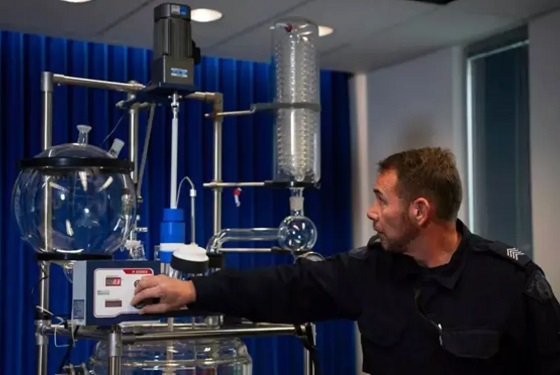
 Crime2 days ago
Crime2 days agoThe “Strong Borders Act,” Misses the Mark — Only Deep Legal Reforms Will Confront Canada’s Fentanyl Networks
-
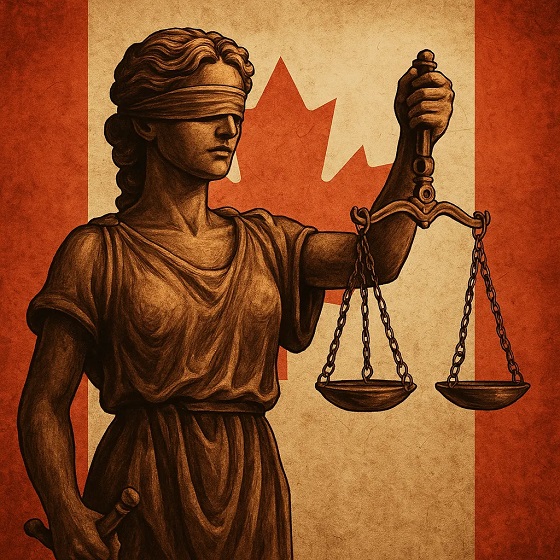
 Censorship Industrial Complex2 days ago
Censorship Industrial Complex2 days agoBill C-9 and the Tyranny of Feeling Heading Straight for Canadians
-

 Red Deer9 hours ago
Red Deer9 hours agoThe City or Red Deer Financial Troubles: The Role of Good Governance, Effective Policies and Key Performance Metrics.





